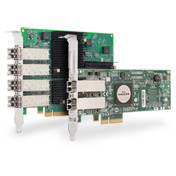
Long-term Investing in IWF ETF for Russell 1000 Growth: Insights on Holdings, Dividend, Performance, and More
Today, I'm excited to delve into a special topic: the 'IWF ETF'. The IWF, or 'iShares Russell 1000 Growth ETF', is an Exchange Traded Fund that primarily invests in large-cap growth stocks in the United States. It's known for including innovative companies that are rapidly growing. 🚀
Contents
What is the IWF ETF?
IWF ETF focuses on large-cap stocks with high growth potential in the US stock market. It is based on the 'Russell 1000 Growth Index', which comprises the most growth-oriented companies among the top 1000 large companies in the USA. 📈
These growth stocks are often found in rapidly expanding sectors like technology, healthcare, and communication services. These companies exhibit high revenue growth rates, and over time, there's a good chance their stock prices could soar significantly. 🔥"
Price and Returns
As of October 26, 2024, the IWF has an 5-year average annual return of 18.68%. An annual return of over 10% is fantastic for generating compound returns in the long run. 📈
However, it's important to note that IWF experiences significant price fluctuations, so it's wise to approach investing in it with a mindset of regular, consistent buying. 📊
Below, you'll find the current price chart for the IWF, providing a snapshot of its recent performance. 🔍
Dividends and Dividend Growth
As of October 26, 2024, the dividend yield of the IWF ETF stands at 0.48%. This current yield is relatively low, so it might not be the best choice for those looking to invest primarily for dividend income right now.
Meanwhile, the recent 1-year dividend growth rate of the IWF ETF is 8.5% , and its 5-year average annual dividend growth rate is 5.33%.
Top Holdings
Understanding which companies have a high weight in the IWF ETF can really help us get a better grasp of this investment product. The IWF ETF invests in a total of 443 companies, but let's focus on the top 10 holdings in this fund.
Microsoft, a global leader in software, cloud computing, and personal computing, consistently drives innovation and growth. As part of the IWF ETF, Microsoft contributes to the fund's focus on large-cap growth stocks in the tech sector. 💻

Known for its innovation in consumer electronics and software, Apple is a powerhouse in technology and design. Its inclusion in the IWF ETF highlights the fund's commitment to investing in high-growth, large-cap companies. 📱

NVIDIA is renowned for its groundbreaking work in graphics processing units (GPUs) and AI technology. As a part of the IWF ETF, NVIDIA exemplifies the fund's focus on innovative and rapidly growing large-cap companies. 🖥️

As the parent company of Google, Alphabet is at the forefront of internet services and technology. Its inclusion in the IWF ETF highlights the fund's strategy to invest in leading, growth-oriented large-cap companies. 🖥️

🛍️ As a global e-commerce giant, Amazon has revolutionized online shopping and cloud computing with its subsidiary, AWS (Amazon Web Services). Its significant presence in the IWF ETF underscores the fund's investment in high-growth, large-cap companies. 📦

As a pioneering force in social media and digital communication, Meta is expanding its horizons into virtual reality and beyond. Its inclusion in the IWF ETF reflects the fund's focus on innovative, high-growth large-cap companies. 📱

Renowned for its groundbreaking work in pharmaceuticals, Eli Lilly specializes in a wide range of treatments, contributing significantly to global healthcare. 💊

As a global leader in the semiconductor and infrastructure software solutions, Broadcom plays a pivotal role in driving technological advancements.
Its presence in the IWF ETF highlights the fund's commitment to investing in high-growth, large-cap tech companies. 💻

🚗 Known for revolutionizing the electric vehicle (EV) industry, Tesla is more than just a car company; it's a symbol of innovation and sustainable technology.
🌿 Tesla's commitment to clean energy and cutting-edge technology not only sets it apart in the automotive world but also aligns perfectly with the growth ambitions of the IWF ETF.

💳 As a global leader in digital payments, Visa is at the forefront of the financial technology revolution.
💡 Visa's robust network and continuous innovation in the payment industry not only mark its dominance in global finance but also align well with the growth-centric approach of the IWF ETF.
Fees
Each year, IWF charges a fee of 0.19% of your invested amount. Let's put this into perspective: If you invest $1000, it means you will be paying a fee of $1.9 per year. 💰
While this fee might not seem particularly low compared to some other ETFs, it's definitely not on the high side either. It's a moderate fee, especially when you consider the potential benefits of long-term investing. 📈
Advantages of Investing in IWF
Let's talk about the unique advantages of investing in the IWF ETF compared to other investment products.
Firstly, the IWF ETF offers a diverse portfolio of high-growth, large-cap U.S. stocks. This means you're investing in some of the most dynamic and rapidly growing companies in the market. 📈 Secondly, it's managed by professionals, reducing the hassle for you to pick individual stocks.
Another great benefit is the liquidity; you can buy and sell shares of the ETF just like individual stocks, offering flexibility and ease of access. 💼
Lastly, the IWF ETF provides exposure to a broad range of sectors, reducing the risk that comes with investing in a single industry.
Disadvantages of Investing in IWF
While the IWF ETF offers many benefits, it's important to be aware of its potential downsides and considerations.
Firstly, the IWF ETF primarily focuses on large-cap growth stocks, which can be more volatile compared to more diversified funds. This means you might experience significant price swings. 🎢 Secondly, being growth-oriented, the IWF ETF may underperform in market environments where growth stocks are out of favor.
Another point to consider is the sector concentration. The IWF ETF is heavily weighted towards specific sectors like technology, which could lead to risks associated with lack of diversification. 📊 Additionally, the ETF's management fees, while relatively low, still exist, and these can eat into your returns over time.
Finally, it's important to remember that past performance doesn't guarantee future results. So, while the IWF ETF has had strong historical performance, there's no certainty this trend will continue. 📉 Always consider your own investment goals and risk tolerance before investing. Stay informed and invest wisely! 💡
Competitive Products
Let's explore some ETFs that are similar to the IWF ETF and make for interesting comparisons.

1. VUG (Vanguard Growth ETF)
VUG, like IWF, invests in U.S. large-cap growth stocks, focusing on companies with high growth potential. It's known for its broad diversification and lower expense ratio, making it a popular choice among investors. 📊

2. SPYG (SPDR Portfolio S&P 500 Growth ETF)
This fund tracks the S&P 500 Growth Index and, like IWF, targets U.S. large-cap growth stocks. It offers exposure to sectors like technology and consumer discretionary, which are known for growth potential. 💹

3. IVW (iShares S&P 500 Growth ETF)
IVW is similar to IWF in terms of investment strategy, focusing on large-cap growth stocks from the S&P 500 index. This ETF is another option for investors looking to tap into the growth segment of the U.S. equity market. 📈
4. SCHG (Schwab U.S. Large-Cap Growth ETF) 🚀
The SCHG ETF focuses onlarge-cap growth stocks in the United States, similar to the IWF ETF. It tracks the Dow Jones U.S. Large-Cap Growth Total Stock Market Index, offering investors exposure to the growth sector of the U.S. large-cap universe. 📊

